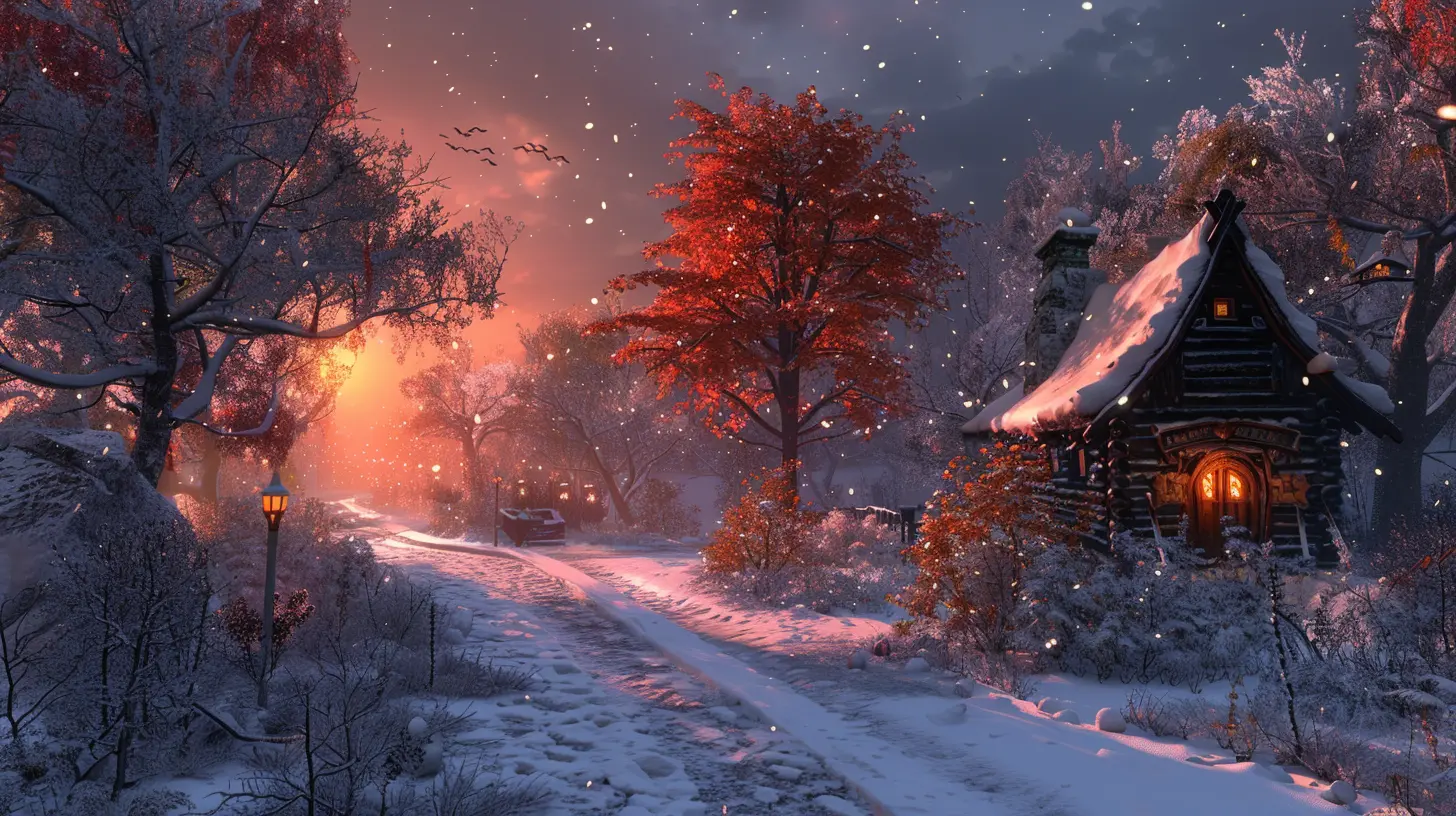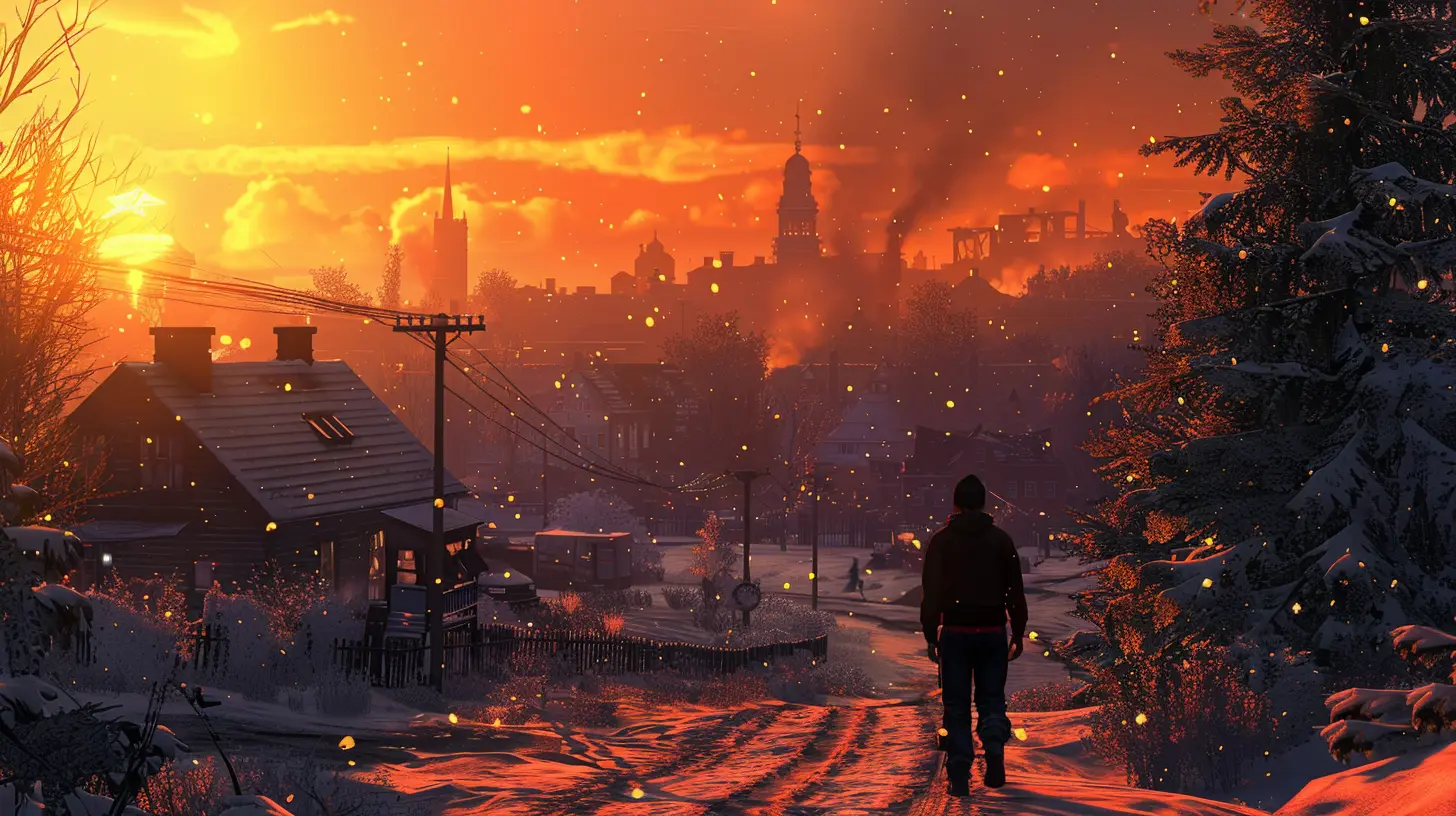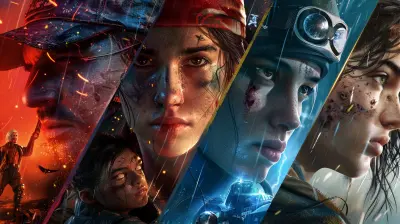Season Passes and the Growing Expectation for Continuous Content
11 September 2025
Gaming has come a long way. Gone are the days where you'd buy a cartridge or disc, play the game to its conclusion (or your wit's end), and then shelve it forever. These days? It feels like games are never truly "done." Developers are keeping players hooked for months—sometimes years—thanks to something I’m sure you’ve heard of: season passes.
Season passes are everywhere these days, whether you're battling it out in a battle royale, building farms in cutesy simulators, or grinding raids in MMOs. But here’s the thing: while gamers are loving the steady stream of new content, they’re also starting to expect it. Let’s dive into this ever-growing trend, unpack what makes season passes so appealing (and controversial), and talk about where this all might be heading. 
What Exactly Is a Season Pass?
If you’re not totally clear on what a season pass is, don’t worry—you’re not alone. With so many buzzwords floating around in the gaming industry, it can be easy to get lost in the jargon.Simply put, a season pass is a kind of digital subscription that gives players access to additional content for a game over a set period of time (usually a few months). Think of it as a VIP ticket where new goodies like skins, challenges, maps, story content, or even new characters are dropped at regular intervals. It keeps the game feeling fresh, even if you've been playing it for ages.
Oh, and most season passes come in two flavors: free tiers and premium tiers. The free tier offers some content to everyone, but—let’s be honest—the premium pass is where publishers put the real shiny stuff. 
Why Are Season Passes So Popular?
1. Keeping Players Engaged Over Time
We live in an era of "live service" games. Developers don’t just want you to buy their game—they want you to stay in their game world for as long as possible. And hey, who can blame them? Launching fresh content every couple of months keeps games from feeling like yesterday’s news.Imagine you’re strolling through a buffet where the dishes change every 30 minutes. You’re way more likely to stick around, right? That’s exactly what season passes do for players. They create this sense of excitement and anticipation for “what’s next.”
2. FOMO is Real
Let’s be real here: a lot of what makes season passes so appealing is the fear of missing out (or FOMO, as the cool kids say). That limited-time skin? The exclusive emote tied to completing all Season 3 challenges? Players don’t want to lose out on in-game status symbols that scream, “Hey, I was here when this was a thing.”Game developers are smart, too. They know how to sprinkle in just enough exclusive goodies to lure even the most casual players into buying a premium pass. And before you know it, you're grinding for that shiny loot like it’s a second job.
3. Bang for Your Buck
Here’s something for all the value-conscious gamers out there: season passes usually feel worth it. For $10-$20, you’re unlocking weeks’ worth of additional content. Compare that to the cost of buying standalone DLC, and the pass often feels like a bargain—assuming you’re willing to put in the time to unlock everything.And that’s the catch, isn’t it? You’ve got to play the game to make the pass worth your money. It’s a clever way of encouraging loyalty. 
The Growing Expectation for Continuous Content
Season passes, live updates, free expansions—they’ve all trained us to expect games to be constantly evolving. And honestly? That expectation can be a double-edged sword.1. The Pressure on Developers
As much as players love fresh content, someone has to make it. And let me tell you, developing video games isn’t exactly a walk in the park. With players getting used to a steady drip of updates, developers are under constant pressure to deliver.This can lead to crunch—those long, grueling work periods where devs work overtime just to meet deadlines. It’s a huge issue in the industry. Sure, we get that cool new map, but at what cost?
2. Not Every Game Needs It
Here’s a hot take: not all games are meant to have season passes or continuous updates. Some games are perfect as they are. Think about single-player gems like The Last of Us or Breath of the Wild. Would you really want some kind of season pass tacked onto those experiences? Probably not.But because live service models are so profitable, it feels like more and more games are being shoehorned into this format. Some hit the mark; others don’t. 
The Fine Line Between Fun and Fatigue
Now, let’s not pretend everything about season passes is sunshine and rainbows. They can be a double-edged sword for players, too.1. Grinding Can Feel Like a Chore
You know that feeling when you’re halfway through a season pass and realize you’ve got miles to go before you unlock the item you actually want? Yeah, it can get exhausting. At its worst, grinding through a season pass starts to feel less like playing a game and more like ticking off items on a to-do list.2. Paywalls and Microtransactions
While the concept of a season pass sounds simple—pay once and unlock rewards—the reality can be messier. Some games use them as a way to nudge players toward additional purchases, whether that’s buying premium currency to skip tiers or shelling out for exclusive content that isn’t even included in the pass.It’s a slippery slope. And for players without deep pockets, it can feel frustrating.
3. Player Burnout
Here’s the thing: as much as players love games, we also have lives outside of them (shocking, I know). When every big title has its own season pass, it can start to feel overwhelming. You might love Warzone, Fortnite, and Apex Legends, but juggling all their season passes? That’s a full-time commitment.What Does the Future Hold?
Season passes aren’t going anywhere anytime soon. In fact, as more games adopt live service models, they’re likely to become even more common. Publishers are constantly tweaking the formula, experimenting with new ways to keep players engaged.But here’s a glimpse at where this trend might be headed:
- More Player-Friendly Models: Some developers, like Bungie with Destiny 2, have started making seasonal content more accessible, even for free-to-play players. Moves like this show that devs are listening to feedback.
- Customization Overload: Expect even wilder cosmetics. Gaming is becoming as much about self-expression as it is about gameplay. Your character’s outfit might very well be the new Gucci suit.
- Broader Integration: Season passes might expand beyond games into other areas. Imagine earning pass rewards that tie into streaming platforms, merchandise discounts, or even physical goodies.
Wrapping It Up
Season passes have unquestionably redefined how we play and interact with games. They’ve given us more reasons to stick around, brought us awesome content, and kept some fantastic titles feeling fresh for years. But they’ve also raised the bar for what we expect from game developers.At the end of the day, the key is balance—both for devs trying to meet these demands and for players trying to manage their time (and wallets). Regardless of how you feel about season passes, one thing’s for sure: they’re shaping the future of gaming, one season at a time.
all images in this post were generated using AI tools
Category:
Season PassesAuthor:

Francesca West
Discussion
rate this article
1 comments
Zanya Wolf
In the realm of pixels and dreams, Season passes weave their endless seams. Yet, beneath the thrill, a whisper grows— Is the joy of discovery fading, as demand for more flows?
September 19, 2025 at 2:38 AM

Francesca West
Great observation! As demand for continuous content rises, we must balance excitement with the joy of discovery to keep the experience fresh and engaging.


